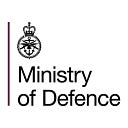I delivered self defence classes aimed to empower over 250 local women in Malakal
Euan Irvine describes how he has helped to create positive change in the Protection of Civilians site in South Sudan as part of Operation TRENTON.
My name is Captain Euan Irvine and I am the Second in Command of 48 Field Squadron, 39 Engineer Regiment. I’ve previously served within the Army Reserves, initially with the City of Edinburgh and later with the 4th Battalion, the Parachute Regiment.
My theory is that even if you can make a small difference and have a positive impact on someone’s life, it has been worthwhile effort. If enough people make a small difference, that can add up to a big difference in the ongoing process of establishing peace and security for the people of South Sudan.
I deployed on Operation Trenton in South Sudan as the Second in Command of the Malakal Engineer Group in January 2019. I have a dual role. As well as my normal responsibilities as Second in Command (2IC), as the Engineer Operations Officer, I am also responsible for coordinating the delivery of engineer effect for the group.
As part of my Mission Specific Training, I completed the Gender Focal Point course at the Nordic Centre for Gender in Military Operations and have been involved with a number of unique projects such as delivering Self Defence classes for local girls living with the Protection of Civilians (PoC) Site.
This forms part of a wider piece of work that hopes to eradicate of conflicted related sexual violence.
The initiative was instigated by the Human Rights Section working with the UN HQ in Malakal, who routinely deal with matters pertaining to CRSV during the peace process.
The classes aim to empower local woman by providing them with the knowledge to make sensible decisions and the skills to escape a potential attacker.
As well as being a qualified Gender Focal Point, I am also a 1st Dan black belt in Shotokan Karate, a 4th Kyu in Judo and have received training in different forms of self-defence.
The classes were split into a mixture of theory and practical. The theory side focussed on educating the student on how the human body reacts to stress, as well as the routine decisions you can make during you normal day that reduces the chances of them being targeted.
The practical lessons consisted of coaching on vulnerable points on the body, so that a potential victim can overcome an a potentially bigger and stronger attacker. This was followed with lessons on how to escape holds, chokes and introducing basic palm striking technique. The women trained will become focal points for their communities in being able to know how to identify what constitutes as CRSV and how to monitor the situation with a focus on survivor support.
The students responded really well to the training and were very happy to strike the large punch bag at the end of each class.The key messaging has always been to avoid confrontation where possible. If they are targeted, the main effort should always be to create the space to escape the attacker.
This projected culminated on the 19th June as part of the International Day for the Elimination of CRSV. All students were gathered in Malakal Stadium where we put on a demonstration for the new governor for the Central Upper Nile State, the UN head of Field Office and the COs’ from all the Troop Contributing Countries.
On a personal level, I have found it incredibly rewarding to be part of this process. I hope the situation never arises, but if it does, the students have the knowledge to protect themselves in the event of an attack.
Find out where else the UK Armed Forces are deployed by clicking here.
